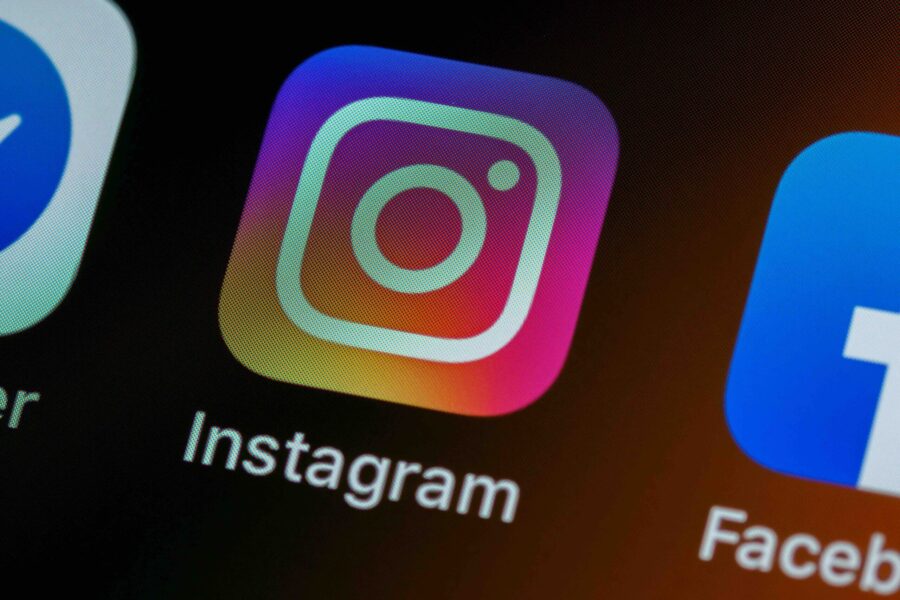Facebook Knows Instagram Is Toxic for Teen Girls
In 2021, long-hidden facts about Facebook came into public view. The Wall Street Journal published a series of investigative articles dubbed The Facebook Files which revealed that since at least 2019, Facebook has been conducting studies into the effects of its photo-sharing platform Instagram on young users. In an article titled “Facebook Knows Instagram Is Toxic for Teen Girls, Company Documents Show,” slides from internal corporate presentations in 2019-2020 are laid bare. Facebook’s own research findings were bleak, especially for girls:
- “We make body image issues worse for one in three teen girls.”
- “Comparisons on Instagram can change how young women view and describe themselves.”
- “Teens blame Instagram for increases in the rate of anxiety and depression. This reaction was unprompted and consistent across all age groups.”
- “Young people are acutely aware that Instagram is having a negative effect on their mental health, but they are compelled to spend time on the app for fear of missing out on cultural and social trends.”
Internal corporate slides also noted that 13% of British teens and 6% of American teens who reported having suicidal thoughts attributed those thoughts to their use of Instagram. And among boys and girls, one in five teens “say Instagram makes them feel worse about themselves.”
These startling statistics are especially alarming since 22 million teens log on to Instagram each day. Over 40% of all Instagram users are under the age of 22.
Both in-depth and broad corporate research conducted with tens of thousands of participants revealed that some of the worst problems with social comparison were specific to Instagram – with its emphasis on the body and lifestyle – and not social media platforms at large.
According to March 2020 internal research, the pressure to look perfect leads to unhealthy body image, eating disorders, and depression. With the algorithm pushing additional images and similar video content to what users are already consuming, teens can easily spiral downward. When one teen searched for exercise videos, she was bombarded with content about weight loss, ideal body type, and diet advice. “I’m pounded with it every time I go on Instagram,” she lamented.
Aware of these facts for years, Facebook has consistently downplayed the negative effects of Instagram on teens in public. Instead, corporate executives have testified to the contrary. When asked about mental health and children’s welfare at a March 2021 congressional hearing, CEO Mark Zuckerberg stated, “The research that we’ve seen is that using social apps to connect with other people can have positive mental-health benefits.”
Nor would the company disclose its research to academics or legislators who have asked for it. Instead, they sent senators a 6-page letter, leaving out Facebook’s own findings, with the comment, “We are not aware of a consensus among studies or experts about how much screen time is ‘too much.’ ” Lawmakers have criticized Facebook for its evasiveness. As Senator Richard Blumenthal of Connecticut noted, “Facebook seems to be taking a page from the textbook of Big Tobacco––targeting teens with potentially dangerous products while masking the science in public.”
San Diego State University psychology professor Jean Twenge, who has conducted her own research into the effects of social media and teen mental health, echoes Blumenthal’s criticisms and concerns. She encourages no one to minimize the negative impact of social media, writing it off as teen girls being emotional: “We’re looking at clinical level depression that requires treatment. We’re talking about self-harm that lands people in the ER.”
Teens themselves have noticed Instagram’s negative effects and have done research of their own. As part of a national science competition, Wisconsin high schoolers Destinee Ramos and Isabel Yoblonski conducted a peer survey. Their findings? Of the 98 students who responded, almost 90% said “social media negatively affected their mental health.”
Worst of all, Facebook’s research shows that even teens who express a desire to spend less time on Instagram “often ‘feel addicted’ and know that what they’re seeing is bad for their mental health but feel unable to stop themselves.”
To this mountain of evidence, what is Facebook’s response? It plans to push a new Instagram product to even younger kids, children under 13, a move opposed by 44 state (and territory) attorneys general. Zuckerberg defended the plan in a 2021 congressional hearing. When asked whether Facebook had studied the app’s effects on children, Zuckerberg answered, “I believe the answer is yes.”
You can read the full Wall Street Journal article – including slides from internal Facebook corporate presentations – here.
Discover more about Facebook’s corporate knowledge about the harm its products cause at The Facebook Files.
Wells, Georgia, Horwitz, Jeff, and Seetharaman, Deepa. “Facebook Knows Instagram Is Toxic for Teen Girls, Company Documents Show.” The Wall Street Journal, 17 Sept 2021, https://www.wsj.com/articles/facebook-knows-instagram-is-toxic-for-teen-girls-company-documents-show-11631620739.
Photo by Brett Jordan on Unsplash



